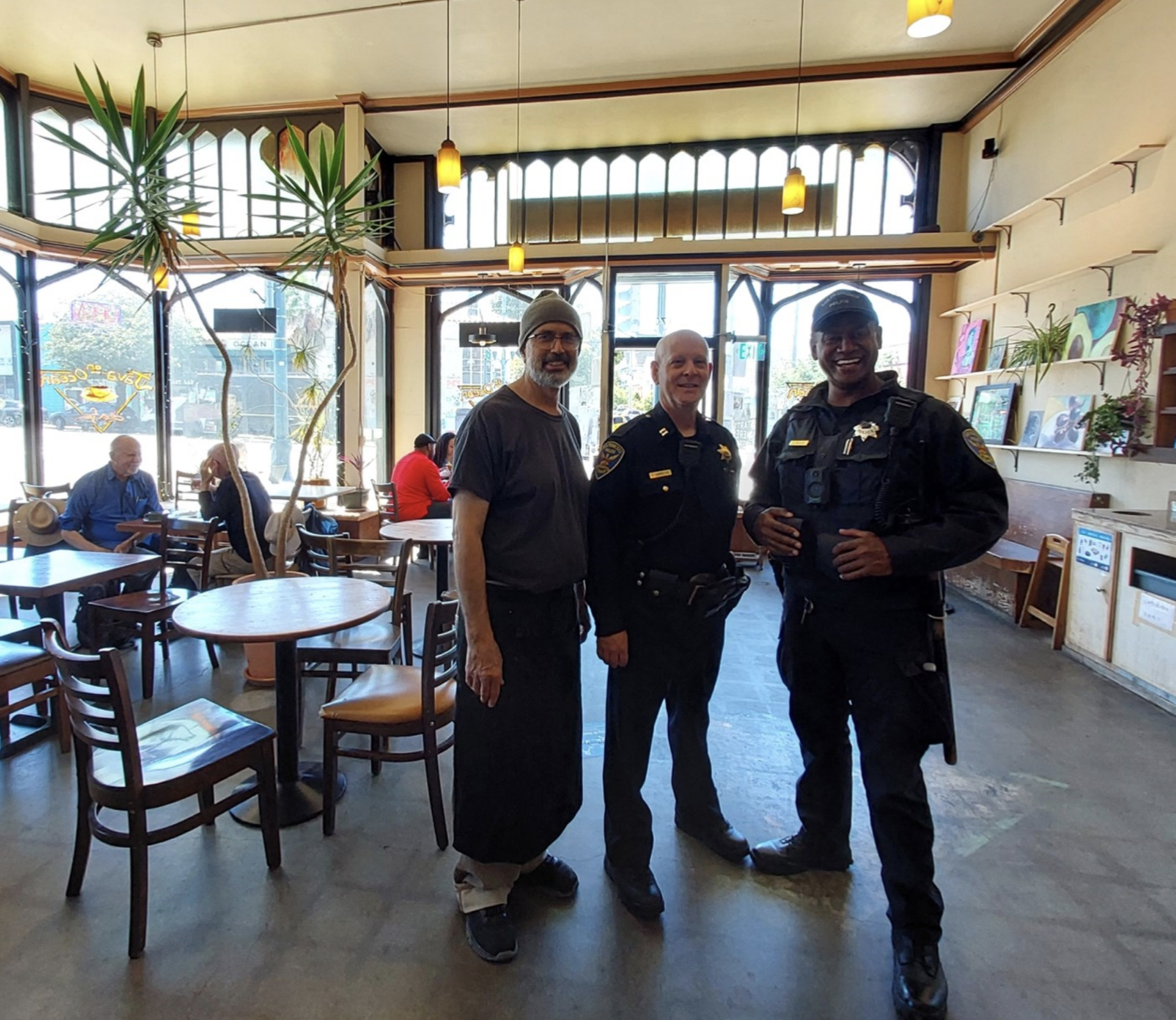Capt. Clayton Harmston has a vision for leading Taraval Station.
The Willows, Calif., native got his start in policing at 18, following in the footsteps of his brother Lynn. While majoring in psychology at San Francisco State University, Harmston worked as a support employee for the FBI. Not too long after, he joined the San Francisco Police Department in 2000.
Although he’s worked at many stations, with his last assignment in the traffic bureau at SFO, Harmston has previously served at Taraval Station three times as a patrolman, sergeant and lieutenant.
“It feels like being home again,” Harmston said. “You know the faces are different because all the officers change, but there are a few officers that I remember from my previous iterations here, so it's nice to see familiar faces when you come back.”
Harmston said he plans to focus on two community areas of concern: street safety and property crime.
Harmston wants to merge traffic enforcement and with education. He doesn’t push a zero-tolerance policy but rather holds a stance on educating minor offenders and has brainstormed ways to use social media to help raise awareness of traffic operations.
Addressing home, car and business break-ins will be done by using the CompStat system. The station has been able to identify where clusters of burglaries occur and has been working with burglary inspectors to form action plans to make arrests.
While there’s much work to do, Harmston, who holds a master's degree in enforcement leadership from the University of San Diego, said he looks forward to leading Taraval Station’s officers.

“We have an excellent group of officers that work here,” Harmston said. “They are young and proactive, and they really take pride in how they deliver police services to the community. My captain's staff officers are really great at having their finger on the pulse of what's going on with the different neighborhoods. I am personally excited to be here to lead these men and women.”
The Ingleside Light caught up with Harmston to hear his plans for Taraval Station.
This interview has been edited for length and clarity.
What does a typical shift look like for you?
In the morning, I usually stop and get my coffee at the Starbucks on West Portal. I come in and my clerk usually has my paperwork on my desk: memos, things I need to review and approve, reports, etc. So I'll approve those, sign those, and basically deal with my inbox. I sort through what I need to do now, or I can let it sit and marinate for a little bit. I check my emails and then get ready for different meetings. We usually have standard meetings that are the same time every week with command staff and we do those on Microsoft Teams so we can bring together all the different captains from the district stations and the commanders and deputy chiefs and talk about crime trends specific issues that need to be addressed and just kind of network with the other captains to see if there's maybe some crime issue happening in a district that's happening in others and so forth. I have those meetings, and then I also have the different communications I have to do with community groups and members of the Board of Supervisors who are requesting things for their constituents or have questions or want to have a meeting. I go through my calendar and make sure I have everybody inputted on my calendar so I know what's coming up and things like that and then just interacting with the lieutenants, seeing what they need, what kind of support I can give them or resources that I need to be requesting from the command staff that we need for the station and then just administrative tasks. I try to get a workout in if I can.
How do you plan to lead Taraval Station?
By fostering and building those relationships, first with the rank and file who work here and the sergeants and lieutenants who lead them. I find that if I am out there in the community and visible, not only at the station but out at events, and the officers see me and the sergeants see me, they know that I am sort of invested and connected to what's going on. I'm not just the captain who you see in the office once in a while, who then disappears and you never see again.
Do you have a favorite memory or accomplishment from your policing career thus far?
My greatest memories are working with a longtime partner [Dave Perry] when we were patrolling in the Bayview District. I felt like I was able to do a lot of good for a lot of people there in a challenging environment, because the regular, everyday people in the Bayview are great, just like in every district, but they're the ones that kind of need us the most because of the high crime. You get to have a direct impact on them and build relationships with them.
And an accomplishment?
I guess being able to promote because every time I promote, it's more of a challenge for me, because I'm able to do more and serve more people under me. I'm a firm believer in servant leadership and that's kind of an outlier in law enforcement leadership. Not many people take on that sort of mentality of leadership.
What’s one piece of advice you have for the community?
I would say if they see something in their neighborhood that just doesn't feel right, please report it. Don't be afraid to report it, but if they see something that is specific, a crime in progress, please be as detailed as you can when you're reporting it to the police and just know that whatever concerns they have, I would encourage them to look at our community meetings that we hold and reach out to their district supervisor.










